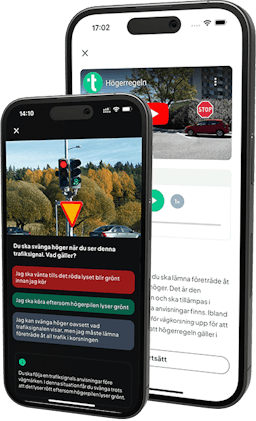Medication
Many prescription and non-prescription drugs can have a negative affect on your ability to drive. For example, they can lead to an impaired ability to react, tiredness, reduced awareness and drowsiness. The effect of different drugs can vary from person to person. It is therefore important that you know whether or not you are a competent driver when on certain medication.
Responsibility
When a doctor prescribes you a certain medication, it is their duty to tell you how it will affect your ability to drive. Pharmacists are also required to provide you with such information when they sell you medication. Despite this, you are entirely responsible for your own driving. Read the information leaflet carefully before taking the medication. If you become a danger on the road due to any medication you have taken, you can be convicted of drunk driving.

Medication together with alcohol
Combining alcohol and medication is not only life threatening, but it also considerably impairs your ability to drive. Medication that does not usually affect your ability to drive can have a negative effect when combined with alcohol.
Narcotics
Most people are well aware that driving under the influence of alcohol is illegal and dangerous. It should not be forgotten that it is equally dangerous to drive when under the influence of narcotics.

Different substances affect us differently. To describe the effect of different drugs, we can divide them into three main groups:
Hallucinogens: For example, marijuana and LSD. These drugs distort our perception of reality and induce hallucinations.
Sedatives: For example, morphine and heroin. These drugs have a sedating effect and increase the risk of falling asleep at the wheel.
Stimulants: For example, cocaine and amphetamine. These drugs can impair judgement, which often leads people to overestimate their own abilities. Stimulants also pose a risk of collapse as such drugs remove feelings of tiredness. The body reaches a point where it cannot go on any longer.
What does the law say about taking narcotics and driving?
The law has zero tolerance for driving while under the influence of narcotics. As soon as the drug can be traced in your blood, you can be convicted of driving under the influence.
Consider that: If you have smoked hash or marijuana, traces of the drug can remain in your body for a longer time. This means you can be convicted for driving under the influence even if you have not smoked that day.


